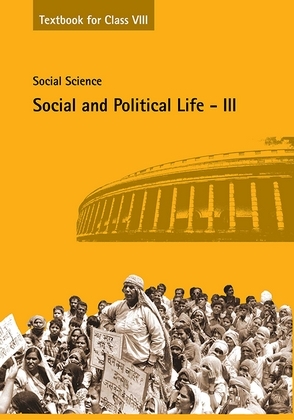Class 8 - Social Science - Social And Political Life III
Chapter 2 - Understanding Secularism

Top Block 1
Question :1. List the different types of religious practice that you find in your neighbourhood. This could be different forms of prayer, worship of different gods, sacred sites, different kinds of religious music and singing etc. Does this indicate freedom of religious practice?
Answer :
The different types of religious practices found in my neighbourhood strongly indicate freedom of religious practice. The various forms of prayer, worship of different gods, sacred sites and different kinds of religious music found in my locality are of Christians, Muslims, Hindus, Sikhs, Jews and the Baha’is. The Christians sing hymns, the Hindus bhajans, while the Muslims offers namaaz five times a day. The Bahai’s believe in world unity and peace.
Question :2. Will the government intervene if some religious group says that their religion allows them to practise infanticide? Give reasons for your answer.
Answer :
The government in any democratic nation would intervene if some religious group says that their religion allows them to practice infanticide because this tradition goes against the Fundamental Right to Life. It involves the killing of an innocent and is, hence, unacceptable. The government, in this case, interferes by coercion. However, sometimes, the government may also intervene via support. For example, Sikhs in Delhi are excused from wearing helmets on two-wheelers because their religion demands them to wear a turban-a sacred tradition for them.
Question :3. Complete the following table:
| Objective | Why is this important? | Example of a violation of this objective |
|---|---|---|
| One religious community does not dominate another. | ||
| The State does not enforce any particular religion nor take away the religious freedom of individuals. | ||
| That some members do not dominate other members of the same religious community. |
Answer :
(a) This is important to protect the Fundamental Right to Freedom of Religion.
Example of violation: the demolition of the Babri Masjid in Ayodhya on 6th December, 1992 by Hindu nationalists.
(b) This is important to uphold the ideals of a democratic nation which allows its citizens freedom to choose whichever religion they wish to follow.
Example: France, in February 2004, banned headscarves and turbans in public places, thereby hurting the sentiments of Muslim and Sikh minorities.
(c) This is necessary to uphold individual freedom in the light of pressure from a group or religious community that one belongs to.
Example, the Christian community is divided into Protestants and Catholics; Irish Catholics are looked down upon and troubled by the officials of the Church of England who are pre-dominantly Protestants.
Question :4. Look up the annual calendar of holidays of your school. How many of them pertain to different religions? What does this indicate?
Answer :
Many holidays on a school’s annual calendar pertain to different religions. This indicates that India is a secular country where religious freedom is granted to its citizens and all religions are equally respected.
Mddle block 1
Question :5. Find out some examples of different views within the same religion.
Answer :
Among Muslims, many people believe in ‘Parda system’, whereas many do not approve of it and see it as interference in the freedom of women.
Question :6. The Indian State both keeps away from religion as well as intervenes in religion. This idea can be quite confusing. Discuss this once again in class using examples from the chapter as well as those that you might have come up with.
Answer :
(i) The Indian State distances itself from the religion and it is not rules by a religious group and nor does it support any one religion.
(ii) Equal respect is given to all the religions. In order to prevent domination by one particular community, the state may interfere in the religion.
(iii) State may interfere in the religion to ensure that all the religions are treated equally.
(iv) Sometimes, the State may have to intervene in the religion based on ‘personal laws’ of the communities to ensure that laws relating to equal inheritance are protected.



